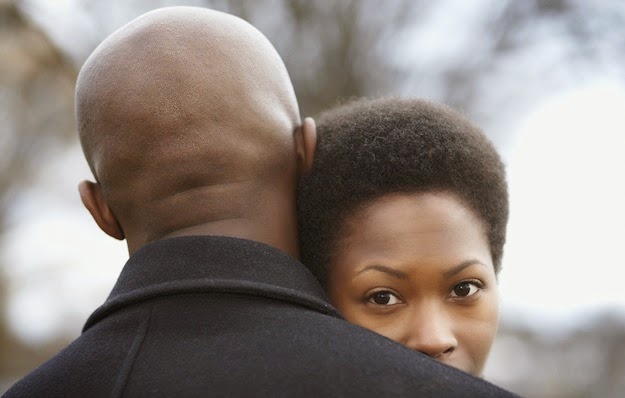I Fear for Our Black Men

by Ifie Natasha Brandon
I’ve always loved black men. The way they walk, their style, the culture they represent, and the beauty reflected through their different hues of brown. I’ve always believed in them. I believe they are more intellectual and creative than society wants to portray them as. I believe their potential for success far outweighs the presumption that they are "dangerous" or "deadbeats."
Today, I fear for these men whom I’ve always loved so much.
I’ve always had a hard time connecting with the ancestry of African-Americans because I am a Nigerian girl with Nigerian parents, raised in a Nigerian household complete with Pigeon English, fufu, and Naija movies. However, being born and raised in the United States allows me to connect to the experiences that African-Americans have had in this country.
Growing up in a predominately white neighborhood afforded me the opportunity to experience racism for myself. Those older white men and women could care less about my Nigerian heritage or the fact that my ancestors and parents didn’t grow up in this country. In their eyes, my two brothers and I were just another set of black kids in their neighborhood; another set of black kids that they preferred would disappear from their well-manicured country club.
At 25, I’m married to a black man and—God willing—will have a black son of my own one day. And at 25, in 2015, I fear for my black men every day.
I’ve gotten so weary that I won’t even allow my husband to drive to work if he's left his wallet at a friend's house. I’d rather wake up with him at 6:30am and drop him off—just so I know there is no reason for a police officer to see him as anything but a compliant and upstanding citizen.
I remember the day I saw the press conference in Ferguson after the death of Michael Brown. I wept. I wept because I knew then this country did not love my black men as I do. I wept because my brothers, cousins, and husband were in danger of being stereotyped, harassed, and even killed because of the color of their skin.
And now, after meditating on the deaths of Walter Scott and Eric Harris, I have to ask myself: Who has the answer? Who are we supposed to be looking to for help? Who is going to help our black men escape an undeserving and tragic fate?
From what I’ve seen growing up in this country, the black woman has played a significant role in protecting her black man. She has fought verbally and physically for him. She has worked ungodly hours to make sure he attends the best schools. She has placed strict rules on him in order to keep him safe from gang violence, drug dealers, and everything else that threatens his ability to survive and thrive. She has prayed for him while he was away, asking God to help him make it home just one more time.
I am a black woman, wanting so badly to protect my black men from harm… but I am finding myself at a loss for solutions. What can we do? As a community, a people, and a nation—what can we do?
Police officers aren’t the only ones killing our black men. They are also killing each other. They are also killing themselves. While I recognize there is a larger problem that goes beyond law enforcement and judicial rulings, I can’t refrain from expressing a frustration with our government system.
Yes, black men are killing each other. Yes, black men are killing themselves. But if we can’t rely on the structure that has been put in place to keep our nation safe—the system that is supposed to protect us and keep our loved ones alive—then who are we supposed to turn to for safety?
The day I wake up and fear my husband may be killed by a police officer because he made a wrong turn or frightened an officer as he reached for his wallet, is the day our system has failed us. And it’s such a real fear. It’s not superficial, nor is it dramatic. The fear I have for my black men is one that cripples and burdens me at night. We can keep them out of gang-infested areas. We can keep drugs from their hands. We can even teach them to be safer as they drive.
But how do we teach them to survive the white supremacy and systemic racism built to “maintain order” in our country?
I’ve always loved black men. I’ve always believed in them. I will continue to have faith that they can be who they were created to be, despite the stereotypes and criminalization of them that the media continues to portray.
I’ve witnessed and interacted with a strong group of individuals who are seeking to make a difference in our society. They have the vigor, drive and willingness to make a change, but I’m still unsure they even know what methods to use. I know that as an individual, I can only do so much. I can only protect my black men to an extent. I have become so burdened by this fear that it has moved me out of my silence.
So again, I ask, I plead: Who has the answer?
Photo: Shutterstock
Ifie Natasha Brandon is a 25-year-old with a passion for writing, women, and truth. Through obtaining her bachelor’s degree in non-profit administration, she discovered her love for rebuilding communities. She is a wife and a soon-to-be mommy of a baby girl.

No comments: